A stance against student debt cancellation doesn’t rely on the assumptions of any single ideology. Strong cases against student debt cancellation can be made based on the fundamental values of any section of the political compass. In no particular order, here are some arguments against student debt cancellation from the perspectives of many disparate ideologies.
Equity and Fairness
Student debt cancellation is a massive subsidy to an already prosperous and privileged population. American college graduates have nearly double the income of high school graduates. African Americans are far underrepresented among degree holders compared to their overall population share.
Within the group of college graduates debt cancellation increases equity, but you can’t get around the fact that 72% of African Americans have no student debt because they never went to college. The tax base for debt cancellation will mostly come from rich white college graduates, but most of the money will go to … rich white college graduates.
Taxing the rich to give to the slightly-less-rich doesn’t have the same Robin Hood ring but might still slightly improve equity and fairness relative to the status quo, except for the fact that it will trade off with far more important programs. Student debt cancellation will cost several hundred billion dollars at least, perhaps up to a trillion dollars or around 4% of GDP. That’s more than defense spending, R&D spending, more than Medicaid and Medicare, and almost as much as social security spending.
A trillion-dollar transfer from the top 10% to the top 20% doesn’t move the needle much on equity but it does move the needle a lot on budgetary and political constraints. We should be spending these resources on those truly in need, not the people who already have the immense privilege on an American college degree.
Effective Altruism
The effective altruist critique of student debt cancellations is similar to the one based on equity and fairness, but with much more focus on global interventions as an alternative way to spend the money.
Grading student debt cancellation on impact, tractability, and neglectedness, it scores very poorly. Mostly because of tiny impact compared to the most effective charitable interventions. Giving tens of thousands of dollars to people who already have high incomes, live in the most prosperous country on earth, and face little risk of death from poverty or disease is so wasteful that it borders on criminal on some views of moral obligations. It is letting tens of millions of children drown (or die from malaria) because you don’t want to get your suit wet saving them. Saving a life costs $5,000, cancelling student debt costs $500 billion, you do the math.
Student Debt Crisis
If what you really care about is stemming the ill-effects of large and growing student debt, debt cancellation is a terrible policy. If you want people to consume less of something, the last thing you should do is subsidize people who consume that thing.
But that’s exactly what debt cancellation does: It is a massive subsidy on student debt. Going forward, the legal precedent and political one-upmanship will make future cancellations more likely, so students will be willing to take more debt, study less remunerative majors, and universities will raise their prices in response.
Helping those who are already saddled with student debt by pushing future generations further into it is not the right way out of this problem.
Fiscal Conservativism
Student debt cancellation is expensive. Several hundred billion dollars has already been spent and several hundred billion more are proposed. This will mostly be financed through debt, especially since most of the costs of the program come through forgone revenue rather than direct spending.
If profligate debt financing like this continues, interest payments on debt will soon become the largest single item on the government’s balance sheet. The problem gets worse as debt gets larger since every additional piece of spending raises the interest rate on all the debt you already hold, so it can quickly spiral out of control.
There are only two ways out of this once the money has been spent: higher taxes and default. Both of these have huge costs to economic growth and freedom that are not worth paying just to bail out college students who weren’t responsible enough to study engineering and pay off their debt.
Democracy
Biden’s student debt cancellation plan does not involve Congress. Instead, he is implementing it entirely through executive order and his control over the Department of Education. An essentially equivalent plan has already been struck down by the Supreme Court but Biden’s team has found justification elsewhere in the library of babel that is the code of federal regulations.
If you think student debt cancellation is a good idea and if it has popular support, then it should be done through an act of Congress. But giving the president the ability to move a trillion dollars off of the government’s balance sheet and send the money back to his voter base without congressional approval is a risk to the democratic institutions of the US. The ends may justify the means in this case, but the next guy will have all the same means and opposite ends.
Cultural Conservatism
Student debt cancellation is a winning lottery ticket for the least deserving group of people in all of human history: American college graduates who aren't productive enough to pay off their own debt. So not the engineers, computer scientists, doctors or lawyers who studied something valuable and paid off their debt responsibly. Nor the plumbers, electricians, and construction workers who invested in an honest trade. These groups will face big tax burdens to pay for the most indulgent and irresponsible college graduates who chose majors that are not valuable to society.
Much of that subsidy will be passed through straight to the already decadent university administrations who will use it to pour even more money into DEI-humanities majors that do nothing except produce a larger constituency for future debt relief.
Progress Studies
The progress studies criticism of student debt cancellation is sort of a combination of the effective altruist critique and the fiscal conservative one. What matters is the opportunity cost. The most important opportunity cost in this case is the lowered economic growth rate due to crowd-out and higher interest rates.
These growth rate effects compound over decades into big differences in living standards. If a tenth of the cost of debt cancellation were invested in R&D we would be several times richer in 100 years than if we spend the money subsidizing degrees with low income returns.
Divestment
A bit of horseshoe theory here. The Palestine and climate divestment protestors and the cultural conservatives agree that student debt cancellation is bad because it is a big subsidy to university administrations, although for very different reasons. Elite universities are hedge funds with classes attached. Subsidizing student debt will push more money into the massive financial machine that is funding fossil fuels and genocide.
Marxism
If we had a Marxist like Rosa Luxemberg here what she would tell you is that there can be no class more revolutionary than the proletariat. Anyone who’s not a worker is a part of the reactionary class. So a diversity officer at Harvard University is in the same class as a bank robber or a prostitute. They are part of a corrupt capitalist racket.
Student debt cancellation is a transfer to bourgeoisie college graduates. The taxes that pay for this transfer are taxes on value that is produced by labor, but claimed by capitalist owners. So even though the accounting books will show the taxes coming mainly from high income earners, this is not merely a transfer from the rich to the slightly less rich. It is a smokescreen over a transfer from the value created by workers to temporarily embarrassed capitalists.
Biden’s Campaign
This is perhaps the only value under which student debt cancellation makes sense. Doing Something about student debt and sending out checks will probably be a popular policy move. Voters don’t usually consider tradeoffs, and the costs of the policy will come long after the election this November. I’m not qualified to say whether this is the best way for Biden to secure a re-election given his resources and constraints, but it wouldn’t be crazy.
For this to be worth it, Biden’s reelection has to be worth several trillion dollars, since debt cancellation costs around one trillion and it’s benefit is just the increase in his percentage chance to win.
Except for the last three, all of these perspectives contribute to my personal stance against student debt cancellation. It’s an inefficient way to help people who aren’t in great need at great expense to economic growth and future generations of students.
There are very few sets of values that couldn’t be fulfilled to greater effect at less cost than trying to fulfill them through student debt cancellation.
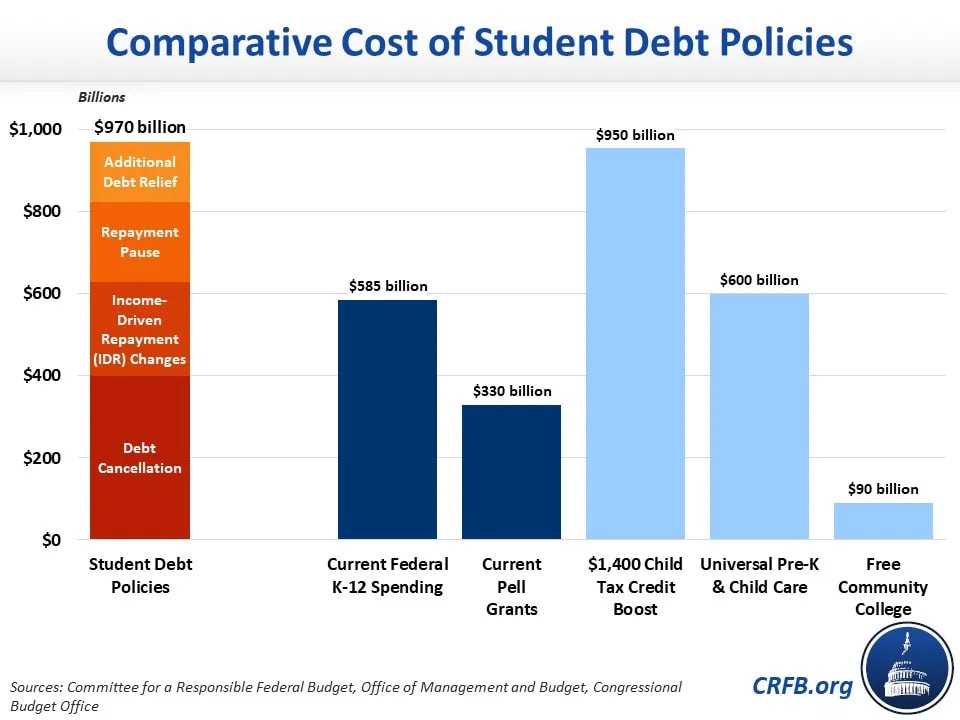
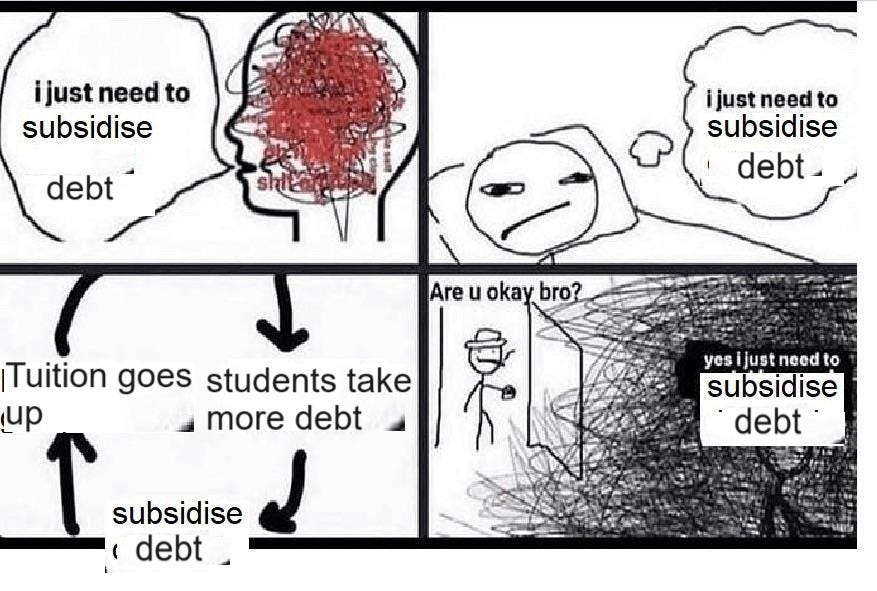
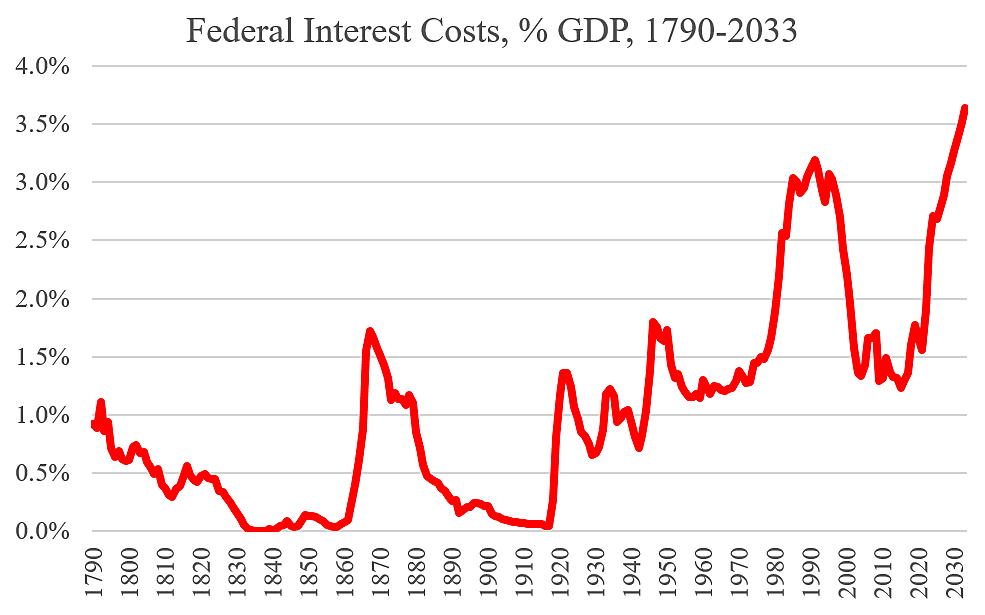
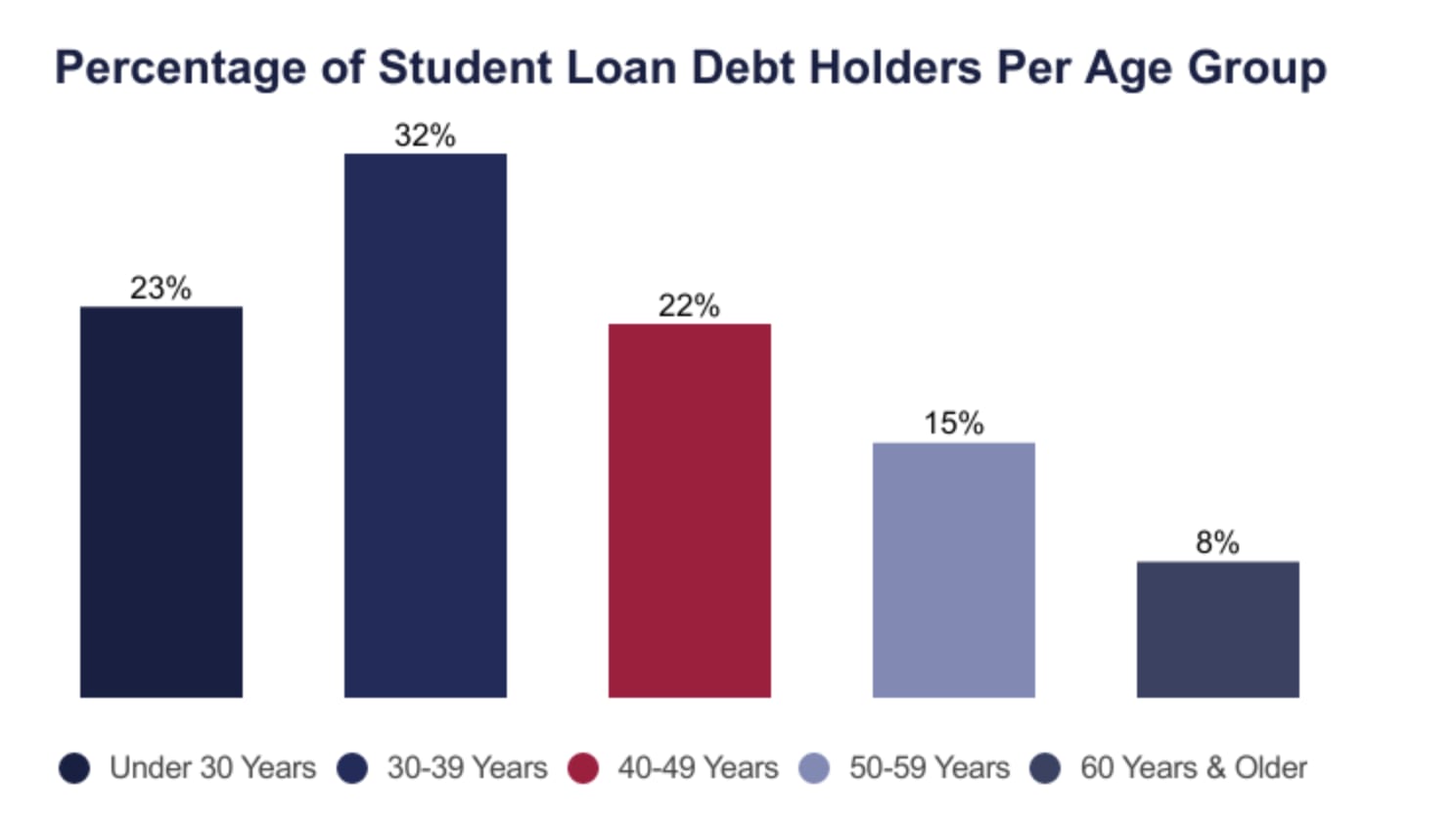
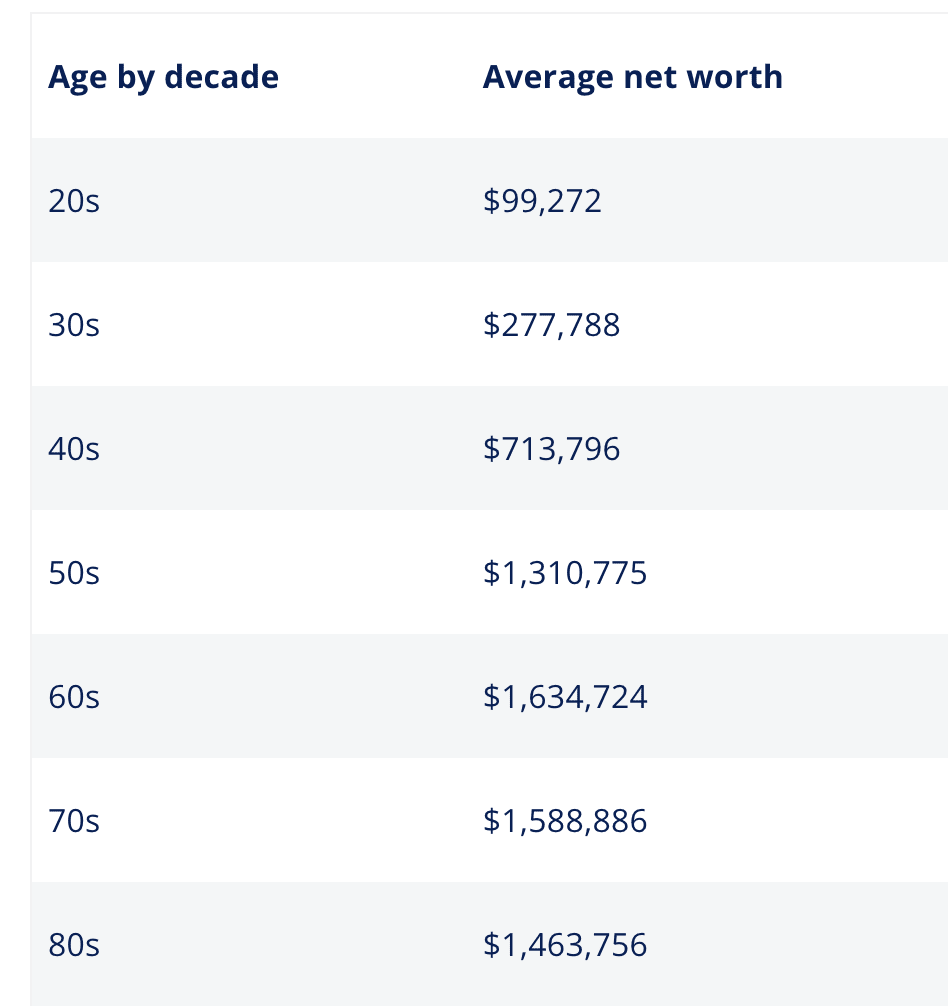
Given economic growth I'd expect current 20 year olds to on average be richer than current 80 year olds by the time they are 80. If that doesn't happen, something has probably gone wrong, unless it's because of something like "more people are living to 80 by spending money on healthcare during their 50's/60's/70s".